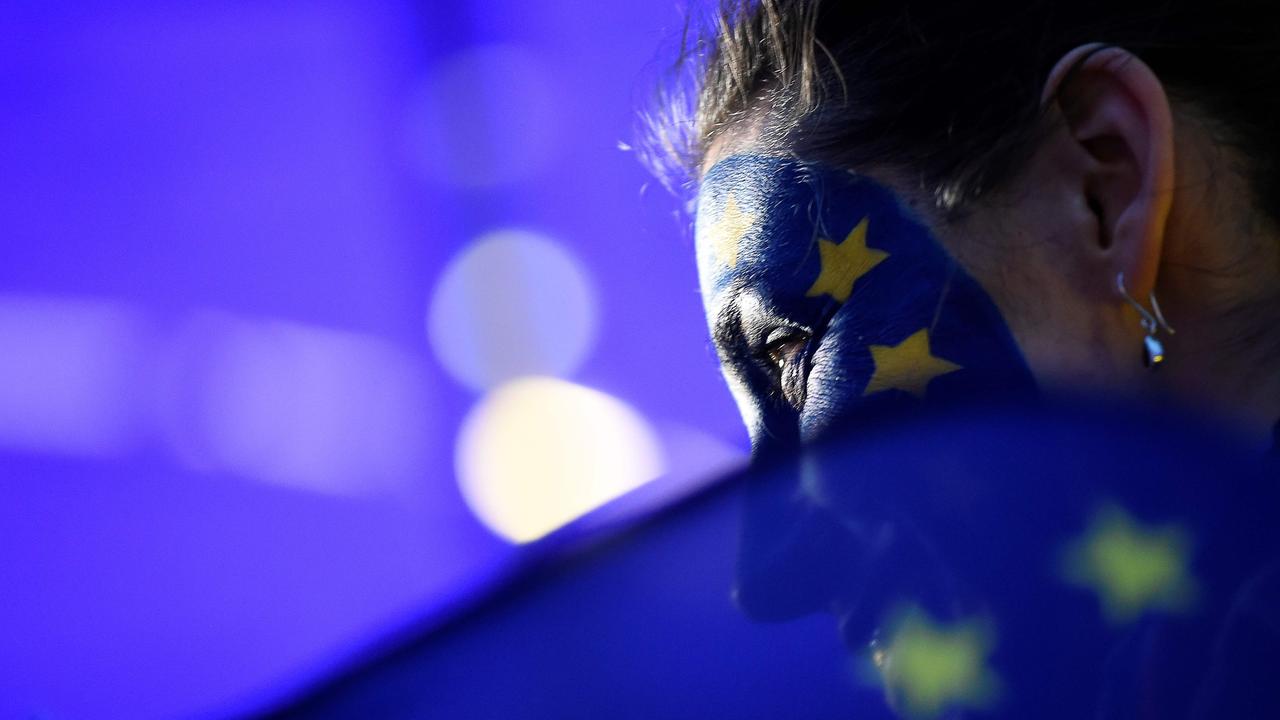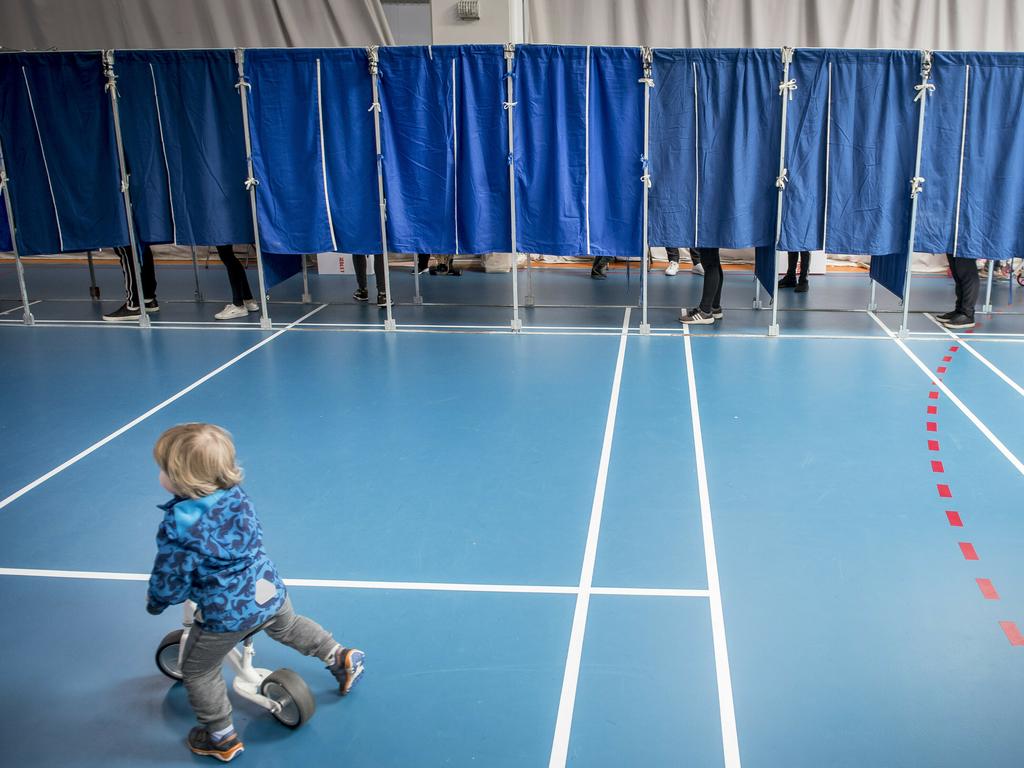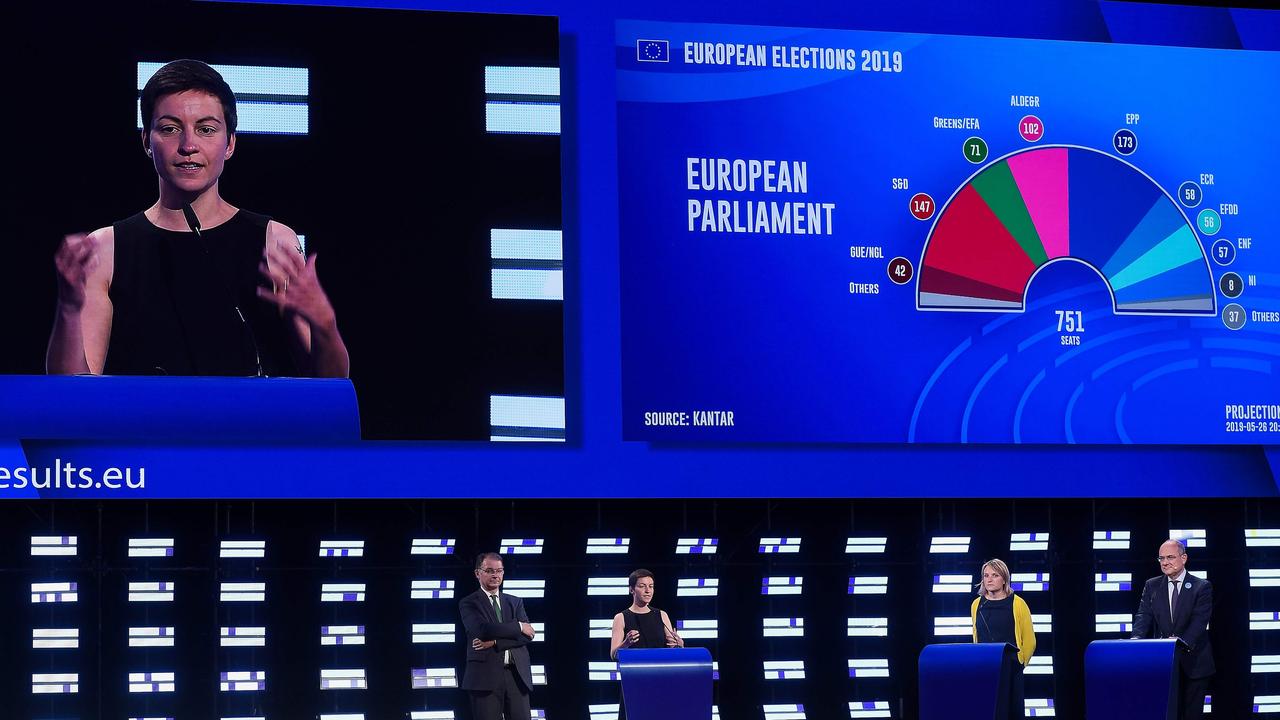EU elections primer: How they work, what happened
Results are coming in from the European Parliament elections in the EU’s 28 member states. This is what you need to know.

Europe’s longtime political center appeared to shrink Sunday as exit polls and early results from the hardest-fought European Parliament elections in decades showed both the anti-immigrant far right and the pro-environment Greens gaining ground.
European voters have turned out in record numbers to choose lawmakers to represent them at the European Parliament for the next five years.
More than 400 million voters in 28 nations had the right to vote over the past four days. Here’s a look at that massive exercise in democracy, a multi-national ballot by the European Union’s only democratically elected institution.
THE VOTE
Europe’s voting marathon kicked off Thursday in Britain and the Netherlands. Voters in Ireland turned out on Friday, and those in the Czech Republic, Latvia, Malta and Slovakia on Saturday. On Sunday, people in the remaining 21 EU nations cast their ballots.
Voters in each EU nation chose some of the 751 lawmakers in the European Parliament, which sits in both Brussels and Strasbourg, France.
Seats in the European Parliament are doled out proportionally based on a nation’s population. Cyprus, Luxembourg and Malta have the fewest seats with six each, while the EU’s most populous member, Germany, has 96 seats. The results from every nation were being released late Sunday after the last polling station in the continent closed. Estimates suggested turnout could hit 51 per cent, the highest in 20 years.
BREXIT PARTY LEADS
The first official British results in the European Parliament bear out predictions of victory for the Brexit Party led by anti-EU figurehead Nigel Farage and a big surge for the strongly pro-European Liberal Democrats.
Both the governing Conservatives and main opposition Labour Party are braced for a drubbing as U.K. voters use the election to protest at Britain’s Brexit deadlock.
The tally from northeast England, the first of the UK’s 12 regions to report, gave the Brexit Party, launched just weeks ago, 39 per cent of the vote. The left-of-center Labour Party, which has traditionally dominated the region, got 19 per cent of the vote, down sharply from the last EU elections in 2014. The Liberal Democrats, campaigning to stop Brexit, more than doubled their share to 17 per cent of the vote, while the governing Conservatives got just 7 per cent, one point behind the pro-EU, environmentalist Greens.
The results reflect an electorate deeply divided over Britain’s delayed departure from the European Union, but united in anger at the two long-dominant parties, Conservatives and Labour.
The Conservatives look likely to be punished for failing to take the country out of the EU as promised, a failure that led May to announce Friday that she is stepping down.
HOW IMPORTANT IS THE EUROPEAN PARLIAMENT?
The assembly’s powers are slowly growing. It’s helped to improve air flight safety in Europe, cut down on plastics use, end mobile telephone roaming charges within the bloc, boost data privacy, set climate change ambitions and reduce carbon dioxide emissions from cars.
The parliament also has a say in treaties ranging from trade talks to Brexit. The EU’s powerful executive arm, the European Commission, proposes laws, while EU lawmakers amend and negotiate their content with national governments, which are the real font of European power and are represented by the EU Council.
Often, the big impact of these EU elections is on the domestic politics of individual EU nations, like support in Britain for the anti-Europe U.K. Independence Party in 2014. In a repeat of her showing in 2014, Marine Le Pen’s far-right National Front party, now rebranded as the National Rally, appeared have scored big in France.
The polls are often used by disgruntled citizens to cast protest votes against their own national governments.

WHAT WERE THE MAIN ISSUES?
There are no “European citizens” as such, so voters tend to respond to national interests.
How Europe handles migration was a very significant concern for voters in Italy, Hungary, Poland and elsewhere. Economic concerns often influence voters, and Britain’s future in the EU appeared to have been a factor again.
An EU survey of public sentiment in April found that voters were most concerned about the economy, unemployment, immigration, the environment and climate change, terrorism and promoting human rights, democracy and social welfare.
WHO’S LIKELY TO WIN WHAT?
Early estimates Sunday suggested that the center-right European People’s Party will remain the biggest bloc in the European Parliament but lose perhaps more than 40 seats. Their traditional allies, the center-left Socialists and Democrats group, are also expected to lose around 40 seats. Together they are forecast to capture about 320 seats in the 751-seat house.
Among other mainstream parties, the liberal ALDE alliance is expected to capture just over 100 seats, well up from 68 in 2014, while the Greens could rank fourth with about 70 seats, up from 52. However, the liberals are set to create a new group with French President Emmanuel Macron’s centrist party.
As for the far-right and nationalists, the Europe of Nations and Freedom group, which combines parties like Italy’s League, Britain’s UKIP and France’s far-right National Rally, was predicted to win perhaps 20 more seats than the 37 it held in the out-going assembly.

HOW WILL THE VOTE CHANGE EUROPE?
Europe’s mainstream political groups appear set to hold control over the assembly, but with fewer seats and they will be pressured into uncomfortable compromises or awkward alliances in order to pass EU legislation.
Populist and nationalist parties have found rising support in national elections in many EU countries, but their pan-European impact will depend on whether they can form a strong political group in Brussels. That certainly is their goal. Italy’s hard-line interior minister, Matteo Salvini, head of the League party, has been putting together a populist group of national parties that he says aims to fundamentally shake up EU politics.
Forming such a group is not easy — 25 lawmakers are required, with at least one- quarter of the EU’s 28 nations represented — but it’s important because it opens up valuable access to EU funds and political influence.
WHAT HAPPENS AFTER THE ELECTIONS?
Once the results are in, the newly elected EU lawmakers will begin haggling to form parliamentary groups, possibly as soon as Monday.
The present European Parliament’s term ends July 1 and the new parliament will take their seats in Strasbourg the following day. At the first plenary on July 2, they will elect the president, 14 vice presidents and five other senior officials in the House, as well as decide on the number and composition of parliamentary committees.
EU leaders will meet on Tuesday to choose candidates for the bloc’s top jobs. Between July and October, the assembly is called on to endorse those candidates, notably the new president of the European Commission. Parliamentary hearings will then begin to confirm EU commissioners in charge of specific policies.



